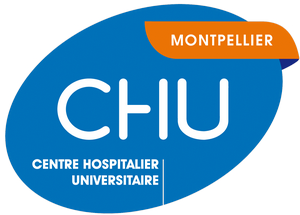Background
Autism spectrum disorder (ASD) is a behaviorally defined condition, likely multifacto rial and resulting from environmental and genetic elements. Emerging epidemiological studies suggest that exposure to pesticides is associated with atypical neurodevelopmental trajectories, representing a risk factor for ASD.
rial and resulting from environmental and genetic elements. Emerging epidemiological studies suggest that exposure to pesticides is associated with atypical neurodevelopmental trajectories, representing a risk factor for ASD.
However, although the herbicide glyphosate is omnipresent in food and water and the question about its toxicity in mammals is the subject of lively debate, the impact of glyphosate on ASD is yet to be determined.
Objective
The aim of EnviroDisorders is to understand the role of genetics and environmental contaminants, such as glyphosate, in the development of ASD. The originality of this project relies on a multidisciplinary approach that combines clinical and experimental research.
At the Autism Resource Center (CRA), we are in charge of the clinical/epidemiological arm of the project and our specific objective is to determine whether there is an association between the geographical use of glyphosate and the severity of clinical symptoms in children with ASD.
In the experimental component of the project, our scientific partners aim to understand the effects of glyphosate on gut microbiota and brain functions in animal models and to develop a new analytical modality to detect and measure glyphosate in environmental and biological samples.
Methods
We are currently estimating the amount of glyphosate (in kg) which has been potentially applied in a 1000-meter buffer around homes during the prenatal period and the two first years of life of 400 children with ASD from the ELENA cohort. The construction of this exposure to glyphosate indicator relies on data concerning the amount of glyphosate sold per year by postal code in France (Banque Nationale des Ventes de Produits Phytopharmaceutiques par les Distributeurs, in open access) and on collaborations that we have developed with the Observatoire du Développement Rural and the Institut National d’Information Géographique. Then, using ad hoc statistical models, we will determine whether there is an association between the level of exposure to glyphosate and the clinical phenotypes and trajectories of the children.
For more information on the experimental arm of the project :
(https://ceand.chu-montpellier.fr/fileadmin/Minisites/CeAND/Ressources/Dossier-Envirodisorders.pdf).
Partners
This project is led by the Institute of Functional Genomics (IGF) in Montpellier. EnviroDisorders relies on a collaboration between four research institutes:
The EnviroDisorders project is funded by a grant from the Montpellier University of Excellence (Muse- Research Support 2020).
Crédit photo: ©Wu Zefe







